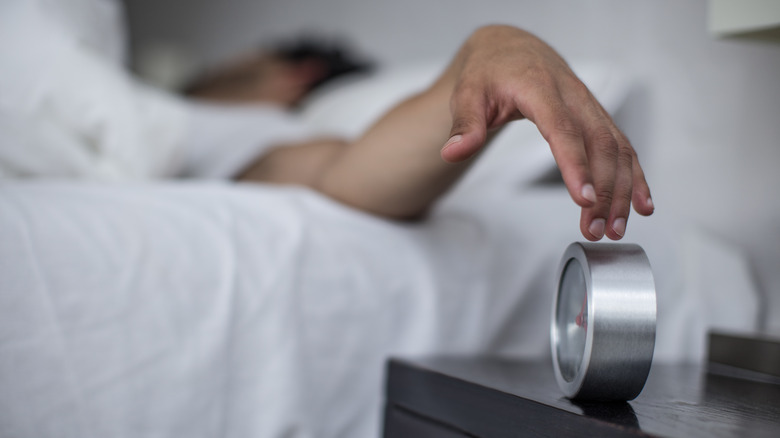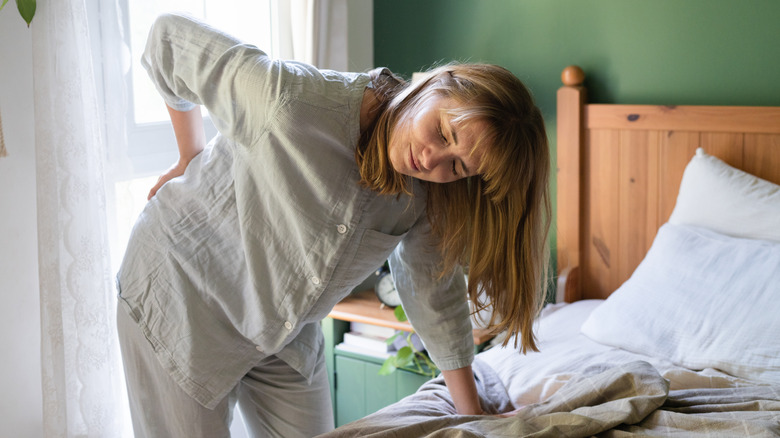Oversleeping Has An Unexpected Effect On Your Back
Every person has a sweet spot when it comes to how much sleep is "enough" for them. (In the case of President Donald Trump, his abbreviated sleep habits may not be doing his health any favors.) However, the general consensus among sleep specialists is that most adults need between seven and nine hours of snooze time to allow their bodies and their minds to recharge and recover. But if you stay in the sack for a lot longer, your back could pay the price.
This may sound a little counterintuitive. After all, shouldn't more rest equal a more relaxed body? The answer is "not always," and for a few understandable reasons. For starters, you could wind up sleeping for extra hours in positions that put strain on your back. When speaking with the Hospital for Special Surgery, spine expert Dr. Robert Griffin explained that, "During the day, people are able to move around and reposition in ways that can help relieve back pain." However, he noted that frequent repositioning tends to occur less often during sleep than it does when someone is awake and aware.
Blame your back pain on your bed
Your back pain after a marathon sleep could be caused by a different culprit, though: sleeping on a bad mattress. Even if you're sleeping on a brand-new, high-quality mattress, your back might feel lousy when you wake up because your spine hasn't been adequately supported. In an ideal situation, your mattress should cradle your body and work with (not against) the curvature of your spine and silhouette. That way, no matter how many times you hit the snooze alarm, your back would feel relatively normal and not achy.
How do you know the best type of mattress to buy? One technique is to start with a mid-level firmness and then experiment with softer and firmer versions. As a 2021 review in the Journal of Orthopaedics and Traumatology showed, a medium-firm mattress may be the best middle-of-the-road option to reduce the likelihood of back pain. (As a bonus, a medium-firm mattress might also reduce sleep disturbances, encouraging better quality sleep — and lowering your need for an abundance of sleep.)
Curb physical pain by prioritizing mental health
There could be another reason for your extended sleep back pain, and it relates to your mental health. Essentially, if you've been feeling anxious and depressed, you may be tempted to sleep for too long. According to sleep psychologist Dr. Michelle Drerup (via Cleveland Clinic), "When someone is depressed, it can be because they sleep as a form of escape." However, if you're stressed out when you fall asleep, your body may hold onto any related tightness — and stress-related back pain is a known phenomenon.
This doesn't mean that an occasional snoozefest will lead to serious back issues. However, regular oversleeping that leaves your back feeling horrible the next day can happen. And if you experiment with different positions, a better mattress, and improved mental care without results, you may want to speak with a physician. Some medications and medical conditions (including being almost addicted to sleep) can cause excessive sleeping, which means your "bad" back could be an unexpected symptom of a larger problem.


